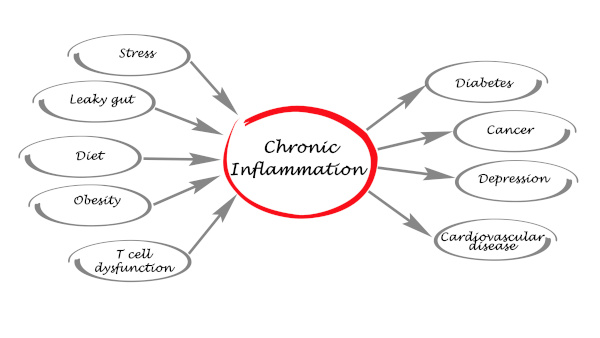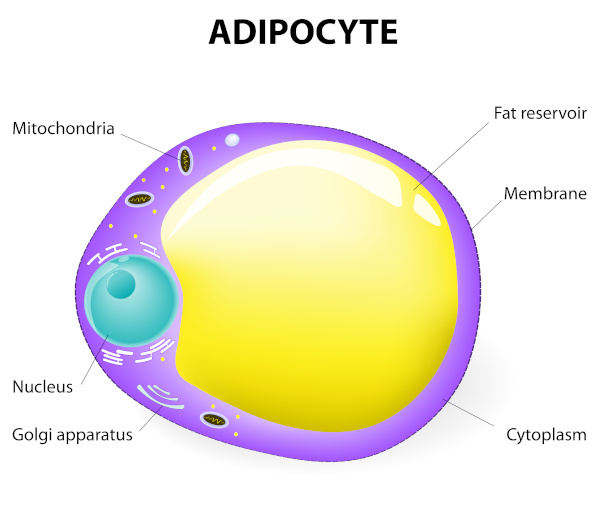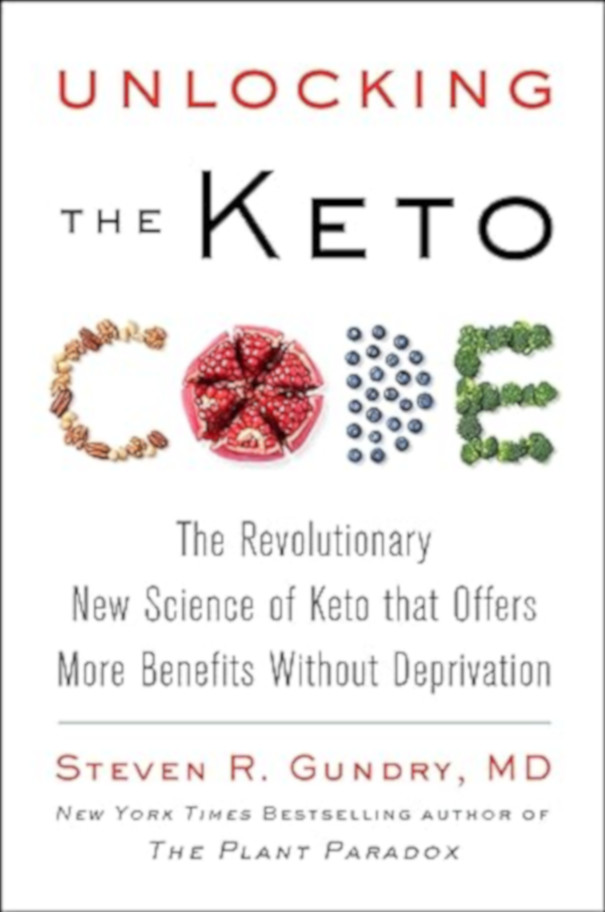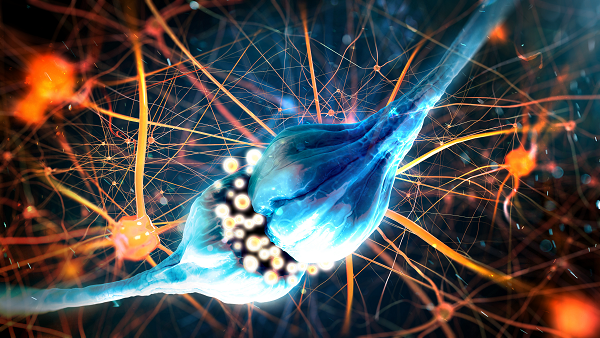8 Keto Diet Benefits – How the Keto Diet Benefits Your Health, Not Just Weight Loss!
Discover the transformative power of the keto diet with these 8 keto diet benefits. One of the most sought-after advantages is weight loss, as the diet’s focus on reducing carbohydrates and embracing healthier fats leads to a naturally slimmer you.

If you’ve been considering the keto diet to lose weight and / or improve your health, keep reading – I have taken my studies into the keto diet to its first beginnings as a natural treatment for epilepsy, the nutritional science behind the ketogenic diet, through its many transformative developments and the benefits it has provided to its users.
The keto diet can bring many benefits to your health in addition to weight loss…….
Scientifically proven, the keto diet produces up to three times more weight loss than a high-carb, low-fat alternative.
Beyond shedding pounds, this dietary approach has been shown to reverse Type 2 Diabetes by improving insulin sensitivity, according to research in the “Annals of Internal Medicine.”
Dive into a realm where dietary fats boost overall health, energize your body efficiently, and elevate brain health and cognitive function. Embrace a lifestyle that not only reduces heart disease risk but also challenges conventional beliefs about saturated fat and cholesterol. Uncover the myriad of benefits of the Custom Keto Diet, a holistic approach to health and wellness.
#1: Help You Lose 7-10lbs per Week Naturally (and Keep it Off!)
The keto diet helps you lose weight fast. Many keto dieters report losing 7-10lbs in their 1st week. Many more go on to sustain that loss with the healthy eating and low-carb nature of the diet. The diet helps you lose weight in 6 ways…
Reduce Excess Carbohydrate Intake
Excess carbohydrates are stored around the body in our fat cells – mainly in the abdominal area causing belly fat. Reducing your excess carbohydrate intake reduces the volume of fat stored. Additionally, a high carb / low micronutrient diet has been shown to increase water retention. The keto diet reduces this water retention leading to an initial loss of weight.
Next comes the real transformative process of reducing the stored belly fat with a sustained drop in carbohydrate intake. Now you are using your fat reserves to fuel your daily activities without replacing the stored fat. The increased intake of healthy fats and micronutrients should now begin to take effect on the secondary stage of your transformation in energising your body with an efficient metabolism and regenerative effects of mitochondrial uncoupling boosted by the ketosis.

Reduce Inflammation
Inflammation is one of the biggest causes of actual obesity. You may be overeating but it is the inflammatory nature of the foods you are ingesting aswell as environmental pollutants that causes the inflammation. Diets rich in inflammatory nutrients give rise to obesity. These inflammatory nutrients in our diets include wheat based products, sugars and toxins created through our own metabolism.

Inflammation is also caused through chemicals used in food manufacturing processes and by ingesting environmental pollution – both the air and water we breathe contain toxins and pollutants (primarily man made). Microplastics are now in many sources of sea food caused through plastics and other hydrocarbon based compounds used in various manufacturing processes.
Healing Fats and Micronutrients
There are certain food sources that contain naturally occurring anti-inflammatory nutrients. By increasing your intake of these nutrients, you can reduce the inflammation caused from the toxins and pollution, resulting in a cleaner, more efficient metabolism. This will have a natural weight loss effect while also resulting in better overall health reducing your dependency on medications to control the inflammation and health destroying effects of these toxins.

These “healing nutrients” (specifically certain saturated fats, vitamins, minerals, amino acids and phytonutrients) heal the body on a cellular level permitting the physiological processes to improve, flush out the toxins, reduce the inflammation and increase your energy levels. Increased energy levels enable us to burn fat more efficiently gaining even more energy enabling you to enjoy a richer, more fulfilling life.
With the necessary micronutrients you can naturally begin to lose the excess weight (or more specifically – fat loss) leading to a naturally slimmer You.
Intermittent Fasting on Keto
Intermittent fasting (I.F) has been shown (and proven scientifically and in real life) to help burn fat fast causing weight loss in a safe and sustainable manner. I.F is essentially taking a longer break from eating than normal.
eg, you have your last meal at 6pm and fast until 9am the following day. This gives you a break (fast) of 15 hrs. After 12 hrs your body will be looking for new sources of energy. By denying fresh intake for a further 3 hrs, you are encouraging your body to use more stored fat and use ketones form your liver as fuel to prevent starvation and to keep the brain and essential bodily functions working.
Intermittent fasting can then be an essential ally in fat burning and weight management. I.F is not difficult – I do it every day occasionally up to an 18 hr fasting window…..
“Due to our unique lifestyle (disabled & wheelchair bound partner with a 7 yr old daughter) our meal times have changed to primarily late evenings. Now our main meal is typically 9:30pm onwards in which case I normally fast until 1pm or even 5pm due to workload. This gives me a fasting period of between 15 and 19 hrs without undue health issues. While this may result in a temporary physical and digestive exhaustion – it is easily recovered from with a healthy balanced meal rich in proteins, vitamins, minerals and a small portion of natural carbs”.
By focusing on living as opposed to eating we can pre-occupy our minds and eat when we need to – not when we want to.
Reduce Water Retention
Diets rich in carbohydrates without the necessary micronutrients can cause water retention in the skin and subcutaneous layers giving rise to “puffiness” of the muscular areas.
By removing these excess carbohydrates, many keto dieters report losing 7 lbs of weight in their first 7 days on the diet due to the loss of water retention, reduction of fat storage (low carb intake) and an increase in beneficial macro and micronutrients that enhance fat burning. This is part of the healing processes within the keto diet.
Increased Energy
By reducing the excess carbohydrates and increasing the beneficial nutrients, your body can consume and process the nutrients effectively and efficiently. With increased energy process efficiency comes a revitalised energy supply enabling your to engage more actively in life – enjoying time with the family, having an adventure, participate in sports, enjoy more travel…..
Many more life experiences can be achieved with a healthier body!
With an improved energy process, you can become more energised. An active, energised lifestyle will then encourage your body to burn more fat as energy. As you burn more fat and lose weight, your body mass becomes less of a burden on your physiology (including your heart and cardiovascular systems) enabling you to increase activities further. It is an accumulative process.
Randomized controlled trials found that the keto diet produces up to three times as much weight loss as a high-carb, low-fat diet.
The keto diet is excellent for losing fat and keeping it off. A meta-analysis of 13 randomized controlled trials concluded that:
“Individuals assigned to a VLCKD [very low carbohydrate ketogenic diet] achieve a greater weight loss than those assigned to an LFD [low-fat diet] in the long term; hence, a VLCKD may be an alternative tool against obesity.”[1]
More interestingly, further research into “ketogenics” and longevity reveal some very interesting facts and additional benefits in weight loss. Studies reveal that incorporating Intermittent Fasting (I.F) into your daily meal routine can increase fat burning. Incorporating I.F into a ketogenic diet can increase the rate at which you burn excess fat.

Unlocking the Keto Code (Dr Stephen R. Gundry)
In his book Unlocking the Keto Code, Dr Stephen Gundry recalls Many research and medical trials (many performed himself on his own patients). In-depth research revealing that ketones are not just the “fuel of ketosis“, but the catalyst of a much greater benefit – Mitochondrial Uncoupling.
“Mitochondrial Uncoupling” is the “vital molecular process that regulates energy creation/consumption and supports health, wellness and longevity”.
In other words, if you want to lean down but are sick and tired of failing your weight loss attempts, the keto diet may be the key to a slim figure and a healthier life.
#2: Boost Brain Function
When going keto, most people experience an improvement in their brain function and mental clarity. Lets face facts here – the ketogenic diet was born out of trials to help children escape the starvation and physical trauma of epilepsy and seizures way back in the 1930’s at the Mayo Clinic. It was developed from dietary trials in a bid to help improve mental stability and has continued to do so in other forms of mental illness.
The high fat/low carb keto diet supports your brain in various ways and for various reasons. A major reason is that ketosis enhances mitochondrial functioning. Mitochondrial dysfunction has been linked to depression – people using ketogenic diets are less likely to suffer from depression [1]. Further, people with depression are reported to have higher levels of oxidative stress in their cells (including brain cells)[1]. By introducing higher levels of specific anti-oxidants, a ketogenic diet can reduce this oxidative stress helping to reverse the effects of toxins and oxidants reverting the body’s cells to a healthier state [1] .
Building Blocks for the Brain
Saturated fat is the fundamental building block of brain cells[12,13,14]. In his book “Unlocking the Keto Code“, Dr Stephen Gundry states the brain is made of 60-70% fats while the National Institute of Health (N.I.H) states 50-60% [7,14]. These fats are primarily Omega-3 (35% brain weight [7]) and Omega-6 (D.H.A and A.L.A). Dr Gundry goes on to state “Omega fats are excellent construction material providing the building blocks for new brain cells“. Omega-3 fatty acids including D.H.A ( a form of Omega-3 ) helps with nerve growth while also protecting the brain from traumatic injury [10].
Numerous studies reveal Omega-3 and Omega-6 fats increase learning, memory, cognitive function and well-being and blood flow in the brain [7,8,9]. In a systematic review on the effects of Omega-3 fatty acids on the brain by the Cochrane Library [11], 1319 individuals were studied. Those who took krill oil supplement showed a marked increase in cognitive function than those on M.C.T’s (medium chain triglycerides).
However, M.C.T’s are needed to aid in neuron function

Researchers believe ketosis stimulates the formation of new mitochondria in your brain, especially in your hippocampus. This aids your mental clarity, memory, and energy levels.
#3: Help Manage or Even Reverse Diabetes
Many studies show minimizing carb intake benefits people with diabetes. In fact, the keto diet was the standard diabetes treatment before the discovery of injectable insulin.

Consider the following:
Research published in Annals of Internal Medicine found that when type 2 diabetics went low-carb for two weeks, they improved insulin sensitivity by up to 75%. Diabetics require regular insulin injections / tablets to compensate for the carbohydrates consumed. Elevated levels of insulin (aka the fat storing hormone) causes weight gain. The Ketogenic diet naturally reduces carbohydrate intake and increases the volume of beneficial nutrients including Magnesium. Magnesium aids in the synthesis of fatty acids, the transmission of nerve impulses, plays an important role in carbohydrate and glucose metabolism. Studies have revealed that low magnesium intake impairs insulin secretion and lower insulin sensitivity which inherently increases the risk of diabetes. By reducing the carbohydrate intake with the keto diet, diabetics can :
- improve insulin sensitivity / insulin response and
- reduce the volume of insulin required to manage the condition.
Additionally, by reducing the volume of insulin required, you are automatically reducing the weight gain through the reduced volume of insulin injected or tablets taken. Its a double win for diabetics.
“As a partner to a T1 diabetic, I see the weight gain results of insulin injections -esp the fast acting insulin taken at meal times to compensate for the carbohydrates consumed. Healthcare professionals know the effects of insulin injections yet still prescribe elevated levels of insulin in a pitiful response to weight gain and insulin resistance (Insulin resistance typically develops through excess insulin injections without addressing the real cause issue). This weight gain and the resulting disabling effects of obesity and the numerous additional mobility restrictions causes depressive states as reported by WebMD [1]”
Another study involving 21 individuals with type 2 diabetes found that seven of them could stop their diabetes medication within 16 weeks of going keto.
#4: Reduce the Risk of Heart Disease
While saturated fat and cholesterol are often alleged to clog arteries, these compounds do not cause heart disease.

That’s good news for keto dieters because this eating style loads up on high-fat foods such as eggs, nuts, and bacon. Not forgetting you can enjoy delicious steaks, avocados, full-fat single and double/heavy cream and rich hi-cacao (cocoa) % chocolate.
In fact, the keto diet reduces heart disease risk for four main reasons:
- Stimulates Weight Loss (Excess weight is one of the primary causes of heart disease).
- Elevates Levels of the “good” HDL cholesterol
- Decreases Blood Triglyeride Levels
- Reduces Blood Pressure
#5: Boost Mental Well-being
The keto diet benefits various mental disorders and conditions. The actual origins of the keto diet are in the care of children suffering from epilepsy during the 1930’s. Further research and medical studies shows…..
The Keto Diet has an Anti-Depressant Effect
Through the development of ketogenic diets in helping patients with epilepsy, growing research revealed it had many benefits to mental health. Fats (the predominant source of fuel in ketogenic diets) have been shown to improve neurological connections and consequently improve mental health. There are numerous pathways to improve mental health through a ketogenic diet:
- Increasing Beneficial Nutritional Substances. By increasing the volume of beneficial nutrition that play essential roles in managing stress, mood and anxiety, the ketogenic diet can naturally reduce symptoms of depression [1]. The effect of the nutrients in the ketogenic diet can reduce depressive symptoms[2] with the fats boosting mental health and the micronutirients improving clearance of toxins, including ammonia from metabolism. Increased intake of specific fatty acids on the ketogenic diet has been shown to reduce the risk of neurological abnormalities such as Parkinson’s Disease, Alzheimer’s Disease and mental depression [ 10]. The nutrients in a K.Diet can also have beneficial effects on the gut microbiome [2]. Magnesium in the diet has been shown to increase beneficial bacteria, improving gut health which also has a translatable benefit on brain health in reducing feelings of anxiety and depression. Research has also shown that a low magnesium diet alters the types of bacteria in the gut and also alters anxiety based behaviour.
- Improving Mitochondrial Function. Mitochondrial dysfunction has been linked to depression[1]. In his book “Unlocking the Keto Code“, Dr Steven Gundry reveals (through various studies) the beneficial effects of fats (esp MCT’s and Omega-3 and 6 essential fatty acids) on mitochondrial activity and the resulting benefits to the brain which is composed of 60-70% fat (pages 90-91). This research reveals that Omega-3 and omega-6 fatty acids are excellent building blocks for new brain cells. These fats also help neurons function optimally and prompts mitochondrial uncoupling. Mitochondrial uncoupling generates heat and CO2. Heat allows the brain to function more efficiently while the CO2 causes local dilation of veins permitting an increase in blood flow. Due to it’s beneficial effects, the ketogenic diet has been used to treat a wide variety of diseases including brain tumours, migraine and autism spectrum disorders [3].
- Reducing Oxidative Stress. Research reveals people with depression have high levels of oxidative stress [1,2]. By introducing more beneficial nutrients into your diet, you can naturally increase the ingestion of antioxidants (chemical compounds found in plants and our bodies that reduce oxidation of cells) into your system thereby reducing the oxidation of cells [2] and the inherent internal stresses caused by poor eating choices.
- Insulin Function. Consuming too much sugar may cause your body to become sugar resistant resulting in an increase in weight, heart disease and depression [1]. A Ketogenic diet with its low carb intake (sugar is a form of carbohydrate) can regulate your insulin levels and thus have a translated benefit in the reduction of depressive moods.
While the above will have significant benefits on mental health and reduce mood swings, the ketogenic diet goes further. Numerous studies reveal specific fats in the keto diet (esp Omega-3) pro-actively enhance cognition, neuronal preservation and protection against neurodegeneration[7] Further studies including a retrospective study of 31 mental health inpatients reveal “significant and substantial improvements in depression and psychosis symptoms and metabolic health” [4]. Poor cognitive abilities are caused by neurodegeneration typically caused through diets rich in carbs[12]. By reducing the carbohydrate intake and increasing the dietary fats intake, the ketogenic diet can alleviate and reverse neurodegeneration.
The Keto Diet Can be Therapeutic for Various Neurological Diseases.
Numerous research studies covering mental health issues over several decades has revealed that a low carb ketogenic diet can improve (and reverse) numerous mental health disorders including Alzheimer’s disease, ALS, Parkinson’s disease, infantile spasms (West syndrome), and epilepsy. Additionally, ketogenic diets have been used to treat a wider variety of diseases including mitochondriopathies, alternating hemiplegia of childhood (A.H.C), brain tumours, migraine, and autism spectrum disorder (A.S.D) [3].

Indeed, the ketogenic diet was actually developed as a therapeutic diet for children suffering from epilepsy in the 1930’s by Doctors at the Mayo Clinic. Through various tests and developments 50% of the children gained complete seizure control.
Keto Diets Improve Behaviour of Children with Autism.
The volume of medical research journals that have published trials around keto and autism is countless. The evidence exists, and most if not all of the evidence supports a ketogenic diet to help people with autism [3].
Keto Diets may Stabilise Mood in Bipolar Disorder Patients.
Keto Diets Have Cured at Least 1 Case of Schizophrenia
Reducing the Risk of Dementia
Dementia (caused by long term neurological degeneration) can be reduced significantly. In a study by the Mayo Clinic it was found that individuals who favoured a carbohydrate rich diet had an 89% higher chance of developing dementia than those on a higher fat diet. Of the individuals assessed, those on the highest fat diets experienced a 44% reduction in the risk of dementia [12]. Another study published in the Journal of Alzheimers Disease [
#6: Prevent and Fight Some Types of Cancer
Most cancer cells rely on glucose as fuel, which is why keto diets may help prevent and fight the disease. For instance, when in-vitro cancer cells only receive ketones and fat for energy, they often die.
Various studies have also shown the keto diet helps fight brain cancer through improved brain health from beneficial nutrients that support mental health.
#7: Improve Gut Health and Bowel Disorders
Many bowel diseases are the result of gut pathogens and infections, both of which rely on glucose for energy. By minimizing your carb intake (and consequently your glucose intake), you stave off these infections and pathogens. That’s how going on the keto diet can improve gut health and treat bowel disease.
In a recent study between 2 completely different unconnected Doctors with groups of patients suffering from 2 different health issues, it was discovered that a diet rich in fats helped cure immunity and digestive health issues while also helping both groups of patients lose the excess weight.
#8 : Healthy Weight Management
Impressive, don’t you agree?
And if you’re ready to reap the benefits, you can get your customized keto meal plan for the price of just three movie tickets.
But first, why not take the 7 Day Custom Keto Diet Trial…..
Start Your
7 Day Custom Keto Diet Trial
References:
- [1] Web MD : “What to Know About Keto and Depression“
- [2] PubMed : “Exploring the mechanisms of action of the antidepressant effect of the ketogenic diet“
- [3] Science Direct : “Anti-depression effects of ketogenic diet are mediated via the restoration of microglial activation and neuronal excitability in the lateral habenula“
- [4] Frontiers : “The Ketogenic Diet for Refractory Mental Illness: A Retrospective Analysis of 31 Inpatients“
- [5] DiabetesUK : “Ketogenic diet and mental health“
- [6] Cambridge.org “Efficacy of low carbohydrate and ketogenic diets in treating mood and anxiety disorders“
- [7] National Institutes of Health : “Effects of Omega-3 Polyunsaturated Fatty Acids on Brain Functions: A Systematic Review“
- [8] Chemistry World : “Omega-3’s and Brain Health“
- [9] University of Texas : ” Study links omega-3s to improved brain structure, cognition at midlife“
- [10] Science Direct : “Omega-3 fatty acids mediated Cellular signaling and its regulation in Human Health“
- [11] Cochrane Library : “Ketogenic diets for drug‐resistant epilepsy“
- [12] Psychology Today : “Your “Healthy” Diet Could Be Quietly Killing Your Brain“
- [13] University of Minnesota : “New Research Finds Saturated Fats Can Lower Change of Cognitive Function Over Time”
- [14] The University of Queensland : “Saturated fatty acid levels increase when making memories”
- [15] Pub Med / NIH : “Dairy foods and cardiometabolic diseases: an update and a reassessment of the impact of SFA“

